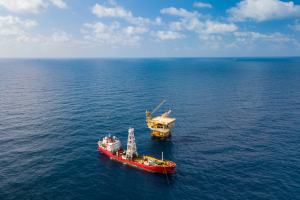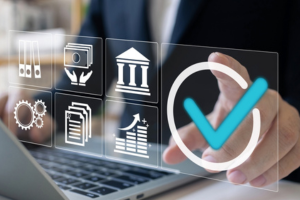Legal Implications of Sustainable Development: A Webinar Series at the University of Milan “Statale” and University of Siena
The intersection of law and sustainable development has become crucial globally, as environmental challenges grow and the need for equitable legal frameworks intensifies. The University of Milan ("Statale") recently hosted a webinar titled "Legal Implications of Sustainable Development" as part of its Master's Degree in Sustainable Natural Resource Management. Held on December 10, 2024, the event was organized by Marco Mariani, President of the UIA's “Administrative and Regulatory Law” Committee and a professor at the University of Milan. Following its success, the webinar was replicated in a condensed version at the University of Siena on March 28, 2025. Each webinar lasted three hours and featured distinguished lawyers from the UIA’s Administrative and Regulatory Law Committee, discussing legal challenges and solutions related to sustainability.
Sustainable development, defined by the Brundtland Commission in 1987, seeks to "meet the needs of the present without compromising the ability of future generations to meet their own needs." This principle shapes legal frameworks regulating natural resources, public territories, and public contracts to ensure long-term environmental sustainability. The webinars focused on how different legal systems incorporate sustainability into these areas, with a particular emphasis on territorial governance and public contracts.
The series explored how legal frameworks balance environmental and economic needs while promoting sustainable practices. The first webinar, held at the University of Milan, was supported by the UIA’s Administrative and Regulatory Law Committee and gathered experts in administrative, environmental, and public procurement law. Speakers provided insights into legal mechanisms that can drive sustainability, particularly through regulating natural resources and managing public territories.
Marco Mariani, from Catte Mariani Law Firm in Florence, Italy, opened the seminar by emphasizing the importance of effective legal frameworks in promoting sustainability and achieving global sustainable development goals.
Rosa Isabel Peña Sastre, who also serves as President of the "Administrative Law" Committee at the European Bars Federation, discussed Spain’s legal framework for managing coastal public resources. Her presentation focused on the challenges of managing maritime and terrestrial public domains while balancing environmental conservation, local community needs, and tourism.
Claude Nicati of the NVLE Law Firm in Switzerland explored the historical development of water law in Switzerland, a country with abundant water resources. His presentation highlighted the legal challenges of water management amid climate change and increasing demand.
Katarina Oskarsson from Allians Law Firm in Stockholm discussed Sweden's successful public water service management model, which includes innovative public-private partnerships ensuring sustainable water governance for both urban and rural communities.
Roberto di Cillo, from Di Cillo Law Firm in São Paulo, provided an in-depth look at Brazil’s deforestation regulations. He focused on the country's complex relationship with environmental protection and economic development, especially concerning the Amazon rainforest and legal efforts to combat illegal deforestation.
Joaquin Palma C., from Palma Law Firm in Santiago, explored Chile’s legal framework for managing water rights, particularly the privatization of water resources and its implications for equitable access and sustainable use.
To conclude the seminar, Marco Mariani reflected on the discussions and emphasized the importance of legal professionals in shaping laws that promote sustainability. He called for continued collaboration among lawyers, policymakers, and scholars to address global environmental challenges.
The University of Siena hosted the second webinar on March 28, 2025, replicating many of the themes from the Milan webinar, with a focus on the Italian, Spanish, Brazilian, and Chilean contexts. Marco Mariani, who also teaches Principles of Law at Siena, provided a fresh perspective on how legal education can engage with sustainable development. The speakers, all members of the UIA-Administrative and Regulatory Law Committee, offered detailed analyses of Italy and the EU’s sustainability goals.
These webinars demonstrated the power of legal frameworks to drive meaningful change. They highlighted how law can support the transition to a sustainable future and the need for continued dialogue on sustainable development across all sectors of society. The UIA-Administrative and Regulatory Law Committee remains committed to promoting legal solutions for sustainability, ensuring that future generations inherit an environmentally secure and socially equitable world.






